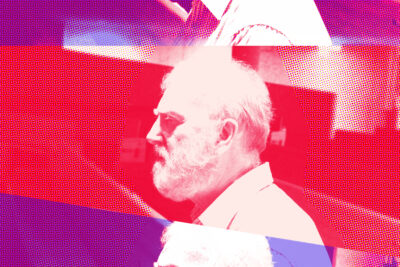Read this article in the limited edition print version: order a copy here.
Life as a Passionist so often demands that we think outside of our comfort zones: to consider new perspectives and apparent paradoxes. For more than three decades now, my daily work has provided me with this challenge. I work as a forensic psychotherapist within the criminal justice system across the London prisons and probation service. At the heart of forensic psychotherapy is the belief that all offences are a symbolic communication of something that cannot be said and that no one is defined by their offence alone. It is these tenets that I embrace when advising courts, parole boards and police investigations on risk, dangerousness and suitability for treatment.
In the context of my work, I have met many hundreds of men and women each presenting me with their own unique version of the paradox of the human condition. I am forever grateful to these men and women who consume my daily thinking, and constantly challenge me to go beyond myself. In the face of the things we consider ‘good’, ‘bad’, ‘evil’ or ‘mad’, the only certainty I come away with is that is is never clear cut; it is always paradox. This, to my mind, is the heart of the experience of the Passion.
The reality that makes us uncomfortable
Paradox in the criminal justice setting is always hidden from public view. My work takes place in a separated, secret world. That fact alone acts as a constant reminder that I am connected to much that many do not want to think about. It is considered only on partial terms by a polarised media, or distorted beyond recognition by the latest Netflix crime drama.
However, in the winter of 2019, a major incident on London Bridge propelled the paradoxes of criminal justice into the wider public’s thinking. And although there was little recognition of it, the very Passionist themes of forgiveness, wholeness and redemption featured strongly.
The incident I refer to unfolded at a conference on rehabilitation. A radicalised young man launched a knife attack on two of those attending and killed them. As the violence continued, it spilled out onto the bridge and others from the conference became involved.
In the media coverage that followed, two men were brought to our attention – and both are deserving of our continued reflection. The first is a man previously convicted of murder who, caught up in a new drama, acts to save and preserve life. The second, a man who has committed his young life to helping change and to rehabilitate similar offenders, loses his life at the hands of one he may well have sought to serve. In the days that followed, the media found many words to express a response in relation to the second. But there was a clear struggle to find the language to comprehend that someone serving a life sentence for murder could also be equally involved in the preservation and saving of lives.
We are forever a sacred mix of ‘good’ and ‘bad’
In this example, it seems that extreme events are never really as extreme as we need them to be. We prefer ‘extreme’ to mystery. We know what to do with ‘extreme’. We make it ‘good’ or ‘bad’ so our small, limited mind can cope. What our thinking struggles most with is the reality and fact of wholeness. The fact that someone – ourselves included – are forever a sacred mix of all that we easily label ‘good’ or ‘bad’ and that the resultant manifest wholeness is, for the most part, not extreme at all. My understanding as a clinician of faith tells me that wholeness is not one or the other: it is always both. It is always a paradox.
The events on London Bridge made public the reality of the paradox within the human condition. For once, the very private world that I inhabit was revealed. Something more occurred; something more got played out for all to see, and that something demands more than our conditioned view of our world and each other. It demands we think beyond the initial superficial reaction, to be unafraid of ourselves and the mystery of what wholeness really looks like. Because wholeness is much more than we care to think about.
We prefer ‘extreme’ to mystery. We know what to do with ‘extreme’. We make it ‘good’ or ‘bad’ and our small, limited mind can then cope. What our thinking struggles most with is the reality and fact of wholeness.
Wholeness also requires us to think about the third man who featured on the bridge that day. For he brings into sharp focus the reality that none of us are ever one-dimensional. We are all that incredible mystery of immense light, immense dark and many dimensions.
At that moment in time, it is the third man who manifests the part of him capable of ultimate destructive behaviour. But, like it or not, that destructive moment is exactly that: a moment. It is not the full picture, and is certainly not the full reality or extent of who he is. The third man was once a babe in arms, just the same as the other two men. He will have also travelled through life being attached to, and loved by, others; being seen and known for many things worthy of praise and respect – nothing like the part of him now witnessed by the world. He too, just like the rest of us, was a manifest paradox in much need of a manifest passion.
Related Stories

Inner State: Passionist Life in North Belfast
North Belfast is a community that has seen immense trauma over the past century – defined by political forces beyond its control.
May 30 2024

To Illumine the Mind: the Catholic diaspora in Paris
In Paris, Martin Coffey leads a church overflowing with working class immigrants. The picture of religion in France, he tells us, is not what you think.
Mar 01 2024

Positive Faith present a World Aids Day service, ‘The Reason for Hope’
Reflections, music and scripture as well as opportunities for sharing on this World Aids Day online service.
Dec 01 2023




